#jitsuko yoshimura
Explore tagged Tumblr posts
Text







Onibaba (1964)
source
197 notes
·
View notes
Text
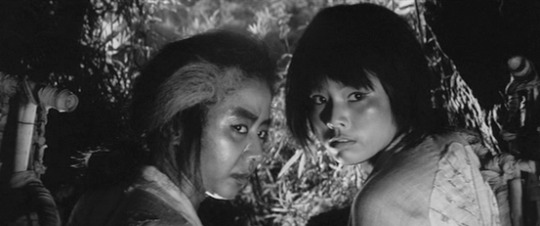

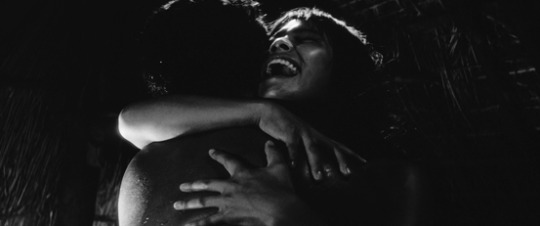
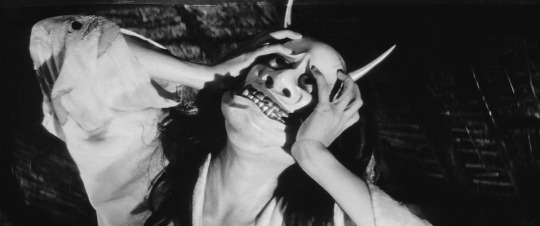
鬼婆 / Onibaba (1964) - Kaneto Shindo
Once it's dark, it can't get any darker.
#鬼婆#Onibaba#film#Kaneto Shindo#criterion channel#film still#watched in st louis#japanese cinema#Jitsuko Yoshimura#Nobuko Otowa#demon#watched in october 2023#quote
116 notes
·
View notes
Photo



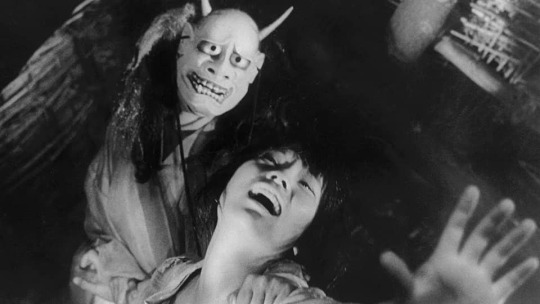
Onibaba (Kaneto Shindō, 1964)
#onibaba#kaneto shindo#horror#japan horror#japan#cult#cult movies#1964#jidaigeki#nobuko otowa#jitsuko yoshimura
94 notes
·
View notes
Text
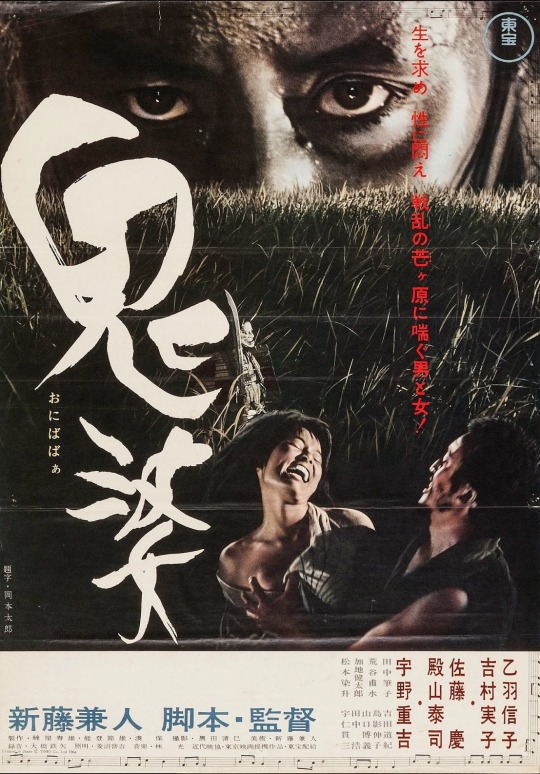
2 notes
·
View notes
Text
Onibaba (1964)

Watching older, classic films - particularly foreign ones - is a unique experience. Many of the conventions from today’s cinema are in their infancy so you often see something old that feels new because the mold hadn’t been finalized yet. In its own, possibly unintended way, 1964’s Onibaba keeps you guessing. It feels like a horror movie but plays out as a drama. Deeply rooted in Japanese culture, I had no idea how the film was going to end.
Set somewhere in feudal Japan while unnamed lords wage a civil war, an older woman (Nobuko Otowa) and her daughter-in-law (Jitsuko Yoshimura) hide in the endless field of tall grass. Stray warriors pass are murdered so the women can take their gear and make ends meet by selling it. When their neighbour, Hachi (Kei Satō) returns from the war, his presence creates a growing rift between the two scavengers.
Most of the characters in Onibaba are unnamed, further giving it a folk tale-like quality. You think you’re following a story about simple archetypes, a basic moral passed down through the ages when suddenly, characters will reveal something unexpected about themselves. This is probably going to be a morality tale - in the end, most horror stories are - but how is this a horror story? By showing you how cheap people's lives are. The women barely make a living stealing weapons and armor from people, human beings they had to kill. It fills you with dread thinking about how little they get for such a heinous crime done so regularly. The women are essentially cannibals, killing men at spearpoint to survive. It’s disturbing but is this what the title’s translation of “demon woman” translates to? It can’t be. “Woman” is singular so it must be that at some point, one of the two women will do something particularly evil… but which one?
The black-and-white photography adds much to this film. Had it been in colour, the fields of grass would make this whole movie green. It would feel vivid and alive. As is, it feels gloomy. The endless vegetation swaying in the wind reminds you of water. These two women are in purgatory and plagued by hunger. There’s got to be a way to escape but the only escape we see is this massive, gaping hole near their home. Its presence mimics the characters in the film, who are always hungry and never satisfied. You just know someone will eventually fall in, but when? What kind of hell awaits them at the bottom?
While Onibaba moves slowly towards an uncertain direction at first, stay with it. Just as you think you’ve got its story figured out, you learn a new detail about the old woman, or the daughter-in-law does something that sends ripples through their world and makes you forget your previous expectations. Now it's an erotic horror film, a drama, and a folk tale. It’s all sorts of things blended together and its artistic presentation makes it feel simultaneously classic and brand-new. (Original Japanese with English Subtitles, October 25, 2019)

#Onibaba#movies#films#movie reviews#film reviews#Kaneto Shindo#Nobuko Otowa#Jitsuko Yoshimura#Kei Sato#Taiji Tonoyama#1964 movies#1964 films
2 notes
·
View notes
Text
Onibaba (1964)
Onibaba (1964) #FilmReview
Synopsis- An impoverished mother and daughter-in-law kill soldiers and steal their belongings. After the mother learns of the son’s death, she dons a mask to scare her daughter-in-law into staying with her. Director- Kaneto Shindo Starring-Jitsuko Yoshimura, Nobuko Otowa, Kei Sato Genre- Horror | War Released-1964 ⭐⭐⭐⭐⭐ Rating: 4.5 out of 5. ���Onibaba” (1964) is a haunting and atmospheric…

View On WordPress
#1960s Cinema#★★★★#black and white cinema#cinema#film review#Film Reviews#Horror#Japanese Cinema#Jitsuko Yoshimura#Kaneto Shindo#Kei Sato#movie review#Nobuko Otowa#War#Women on screen#World Cinema
0 notes
Photo
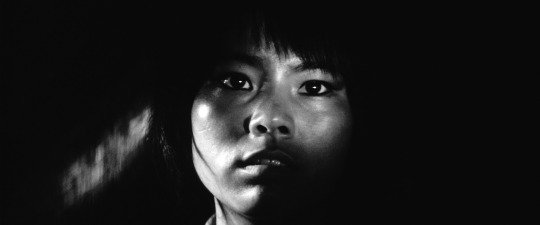
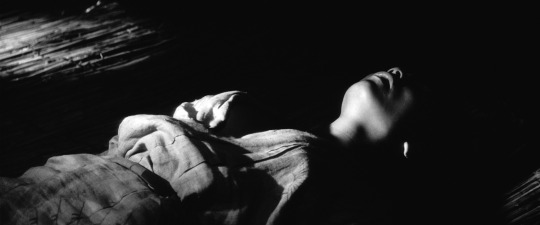
(via 吉村実子(Jitsuko Yoshimura)「鬼婆」(1964)・・・久しぶりに其の四 : 夜ごとの美女)
0 notes
Text
¿¿¿ARE YOU READY JONSAS???
So, according to some reports, Kit and Sophie movie The Dreadful is a remake of the classic Japanese horror movie ONIBABA

Here some synopsis:
IMDB: Two women kill samurai and sell their belongings for a living. While one of them is having an affair with their neighbor, the other woman meets a mysterious samurai wearing a bizarre mask. Filmaffinity: After enlisting as a volunteer in a war in 14th century Japan, his wife and mother remain living in a swamp. They eke out their living by ambushing worn-out warriors, killing them and selling their belongings to a greedy merchant. The woman comes to mistrust her daughter-in-law who has coupled up with a deserter, and begins to wear a facial mask she has taken from a slain samurai. Soon the mask will not come off again. In this disguise she is at first taken for a demon by her daughter. Wikipedia: The film is set during a civil war in medieval Japan. Nobuko Otowa and Jitsuko Yoshimura play two women who kill infighting soldiers to steal their armor and possessions for survival, while Kei Satō plays the man who ultimately comes between them.
If you read the full PLOT on Wikipedia, you will find that the movie is full of sex scenes.
ONIBABA was translated to Spanish as: "ONIBABA: The Myth of Sex"
Here some scenes from the trailer:

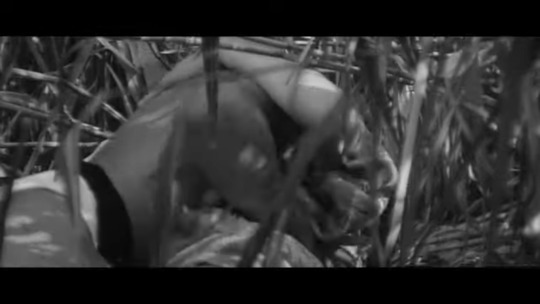

🙈
***JONSA WON SO HARD***
#sophie turner#kit harington#sansa stark#jon snow#jonsa#sophie and kit really decided to film a remake of a japanese horror movie full of sex scenes with them as the main couple . . . .#onibaba#1964
152 notes
·
View notes
Text



Nobuko Otowa, Jitsuko Yoshimura and Kei Satō
Onibaba (1964)
6 notes
·
View notes
Text
Onibaba
12 1964 ‧ Horror/War ‧ 1h 43m
Onibaba (鬼婆, lit. "Demon hag"), also titled The Hole, is a 1964 Japanese historical drama and horror film written and directed by Kaneto Shindō. The film is set during a civil war in medieval Japan. Nobuko Otowa and Jitsuko Yoshimura play two women who kill infighting soldiers to steal their armor and possessions for survival, while Kei Satō plays the man who ultimately comes between them.
An impoverished mother and daughter-in-law kill soldiers and steal their belongings. After the mother learns of the son's death, she dons a mask to scare her daughter-in-law into staying with her.
Release date: January 29, 1966 (France)
Director: Kaneto Shindo
Cinematography: Kiyomi Kuroda
Language: Japanese
Distributed by: Toho Co., Ltd.
Music by: Hikaru Hayashi
Starring
Nobuko Otowa
Jitsuko Yoshimura
Kei Satō
Taiji Tonoyama
Onibaba (film) - Wikipedia
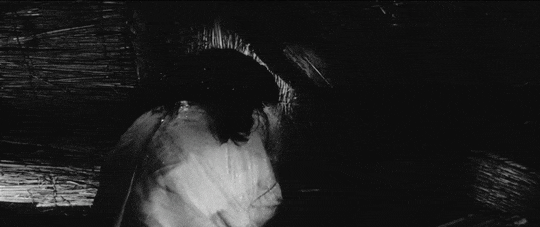


Onibaba (1964), dir. Kaneto Shindo
2K notes
·
View notes
Text
鬼婆 (1964) - Onibaba

directed by Kaneto Shindō
starring Jitsuko Yoshimura
1 note
·
View note
Text

Jitsuko Yoshimura in Onibaba (1964)
120 notes
·
View notes
Photo
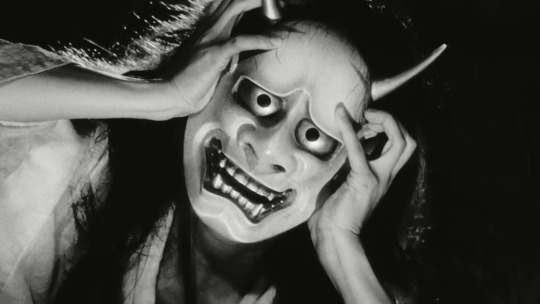

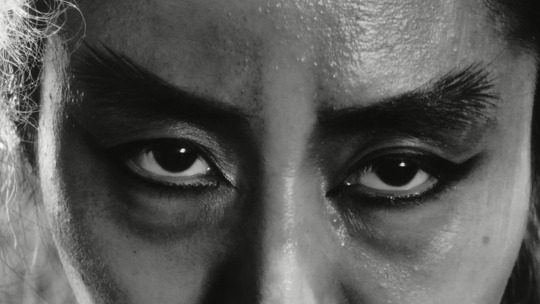
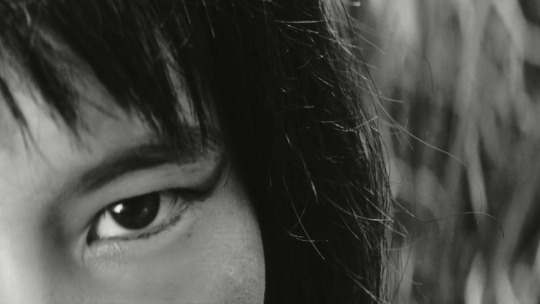

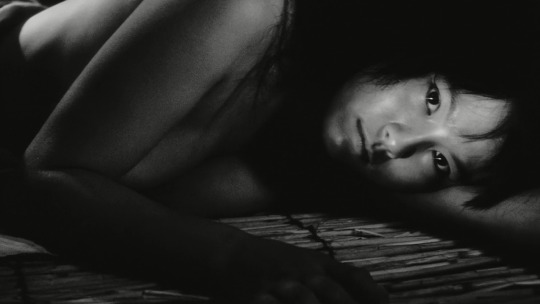
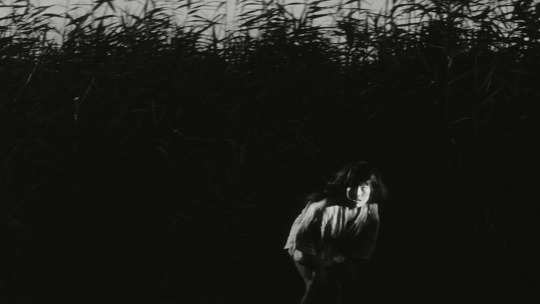
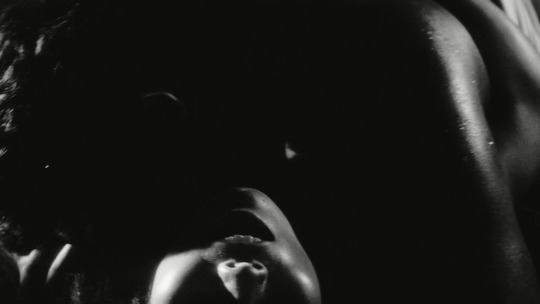
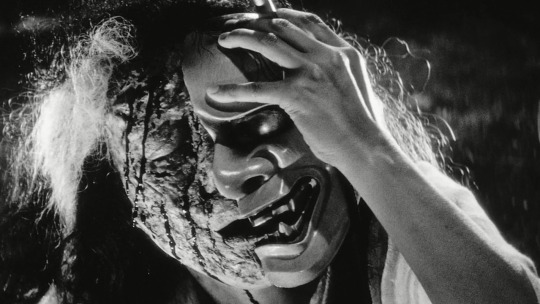
Onibaba, 1964
Kaneto Shindo
#cinema#japanese cinema#art#japanese horror#horror#onibaba#kaneto shindo#nobuko otowa#jitsuko yoshimura#folk tale#movies#film#film shots#cinephile#bnw
199 notes
·
View notes
Photo
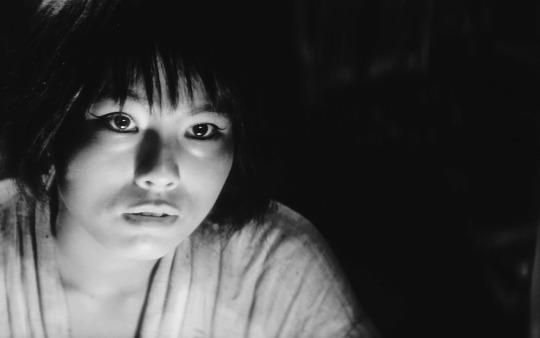


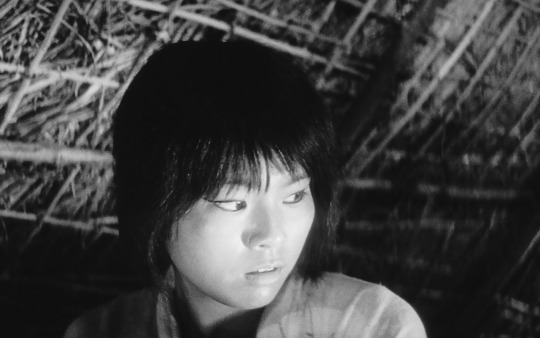
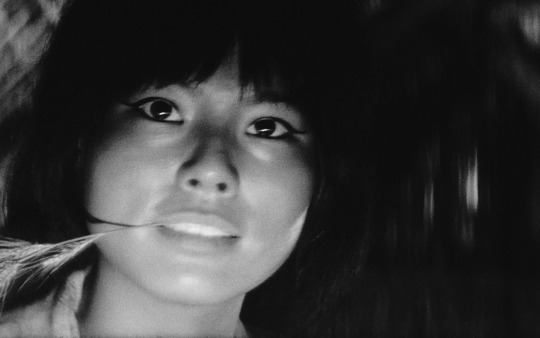
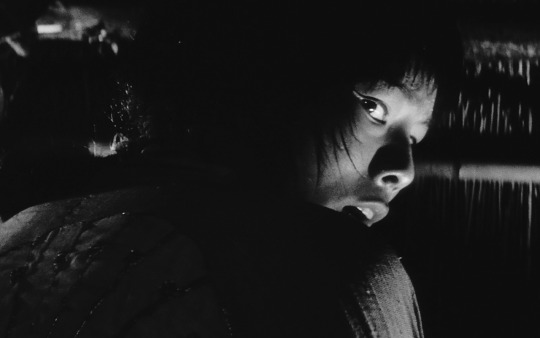
Jitsuko Yoshimura in Onibaba (Kaneto Shindō, 1964)
205 notes
·
View notes
Text
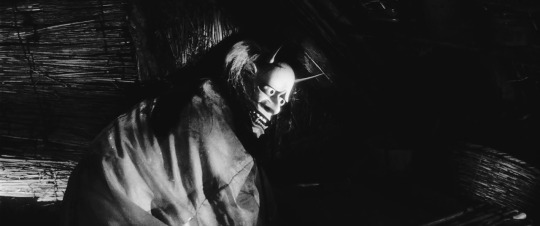
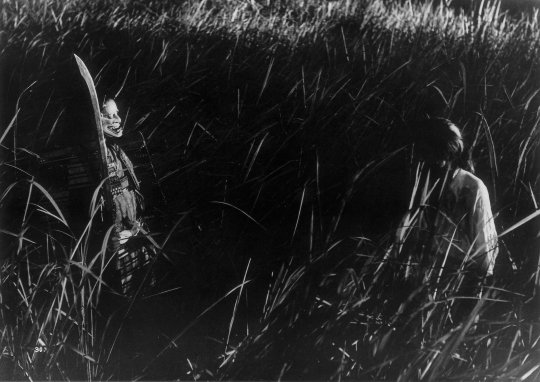

Onibaba [1964 Kaneto Shindō]
#onibaba#japanese cinema#japanese film#demons#japanese movies#film#cinema#asian movies#movies#asian cinema#asian film#kaneto shindo#cult#Kaneto Shindô#Kei Satô#Jitsuko Yoshimura#Nobuko Otowa
52 notes
·
View notes
Text

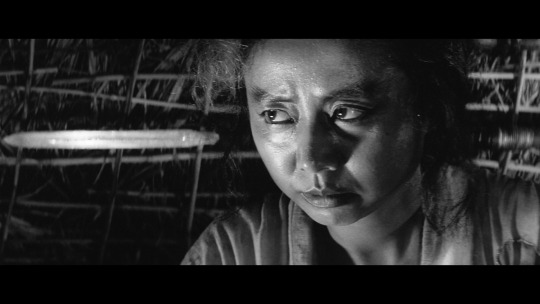
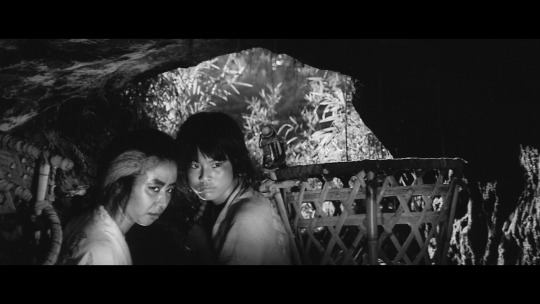
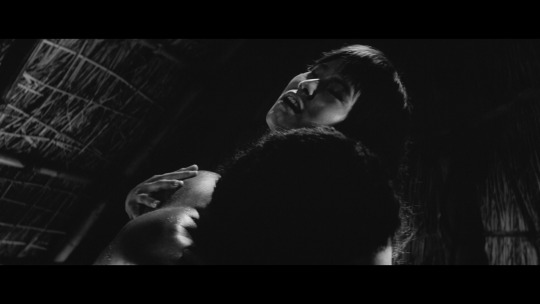






ONIBABA 鬼婆 (1964)
CRITERION COLLECTION Blu-ray 2021
#鬼婆#onibaba#Demon Hag#kaneto shindo#horror#drama#nobuko otowa#乙羽 信子#Jitsuko Yoshimura#吉村実子#Kei Satō#佐藤 慶#Taiji Tonoyama#殿山 泰司#Jukichi Uno#宇野重吉#新藤 兼人#blu-ray#physical media#criterion collection#film#movie#gallery#japan
65 notes
·
View notes